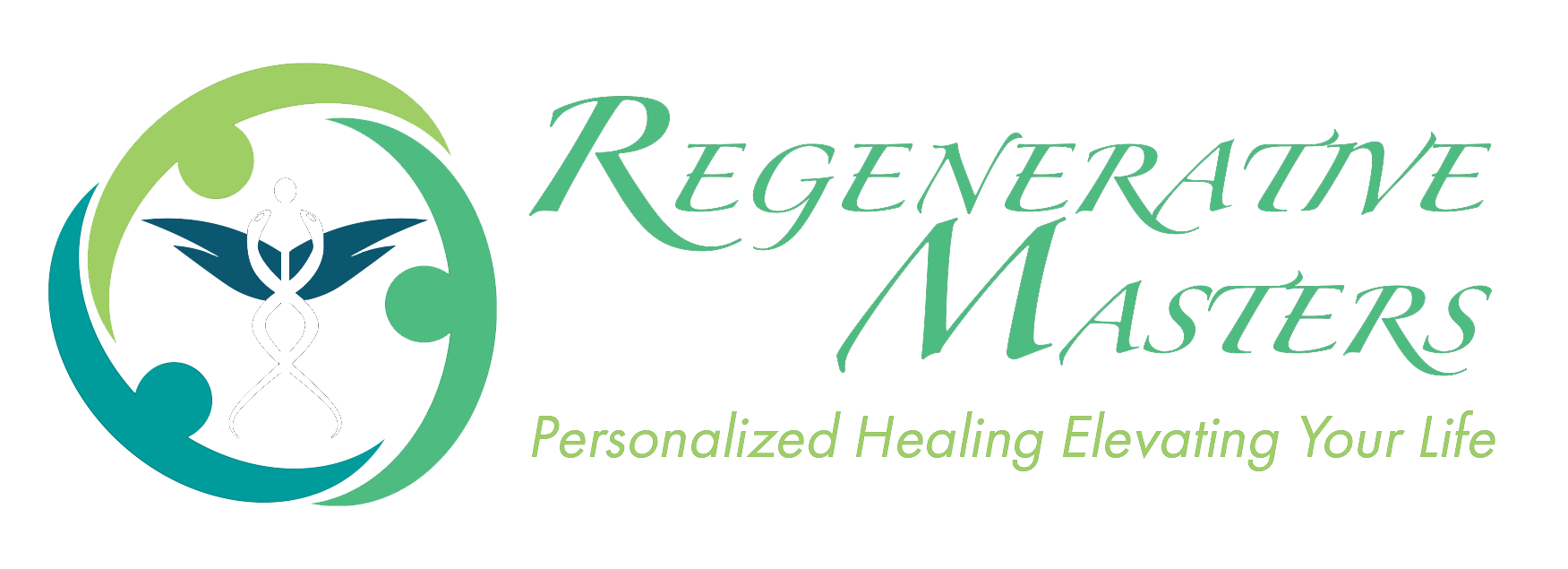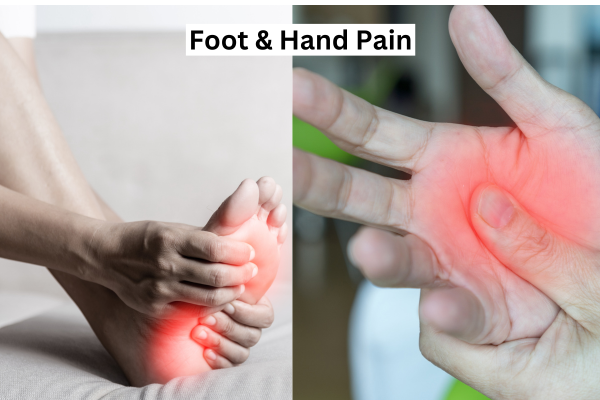Sometimes, our hands and feet hurt inexplicably—not because we accidentally bumped or injured them. This pain can come from problems in the joints (the places where our bones meet), tendons (which connect our muscles to our bones), ligaments (which hold our joints together), or nerves (which send messages to our brain about what we feel).
This kind of pain can feel different for different people. It might be a deep, ongoing ache, like persistent discomfort. Or it can be a sharp, sudden pain, like a prick or a stab. Some folks might feel that their hands or feet become stiff, making it tough to move them comfortably. Others might describe it as a burning sensation, like a mild but constant heat.
If your hands or feet hurt for no apparent reason and it’s bothering you, it’s a good idea to see a doctor. They can help you figure out why you feel this way and what you can do to feel better. Don’t worry; there are often ways to manage this pain and improve your comfort.
What is Foot And Hand Pain?
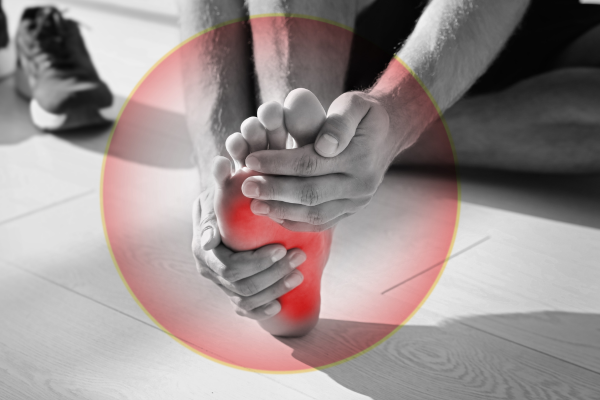
Hand and foot pain means feeling discomfort and aches in your hands and feet. It can be anything from a sharp, intense pain to a dull, ongoing ache. Sometimes, this pain can also spread to other parts of your body. Depending on what’s causing it, you might also experience numbness and tingling in your hands and feet.
What are the Symptoms of Foot And Hand Pain
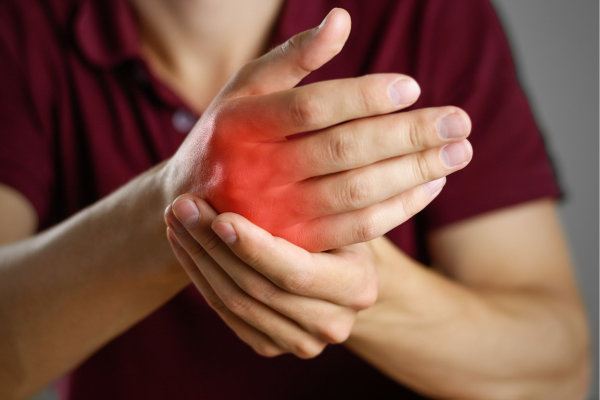
Hand and foot pain can come with feelings besides sharp or dull aches. You might experience other symptoms like:
- Muscle Weakness: Your muscles may not feel as strong as usual.
- Cramps or Twitching: Your muscles might suddenly tighten up (cramps) or move independently (twitching).
- Changes in Skin, Hair, or Nails: Your skin, hair, or nails might look different.
- Numbness or Tingling: You may feel like your skin is asleep or like tiny pins and needles are poking you.
- Loss of Sensation: Some parts of your hand or foot might feel numb, and you can’t also sense things.
- Loss of Balance: You might have trouble staying steady on your feet.
- Burning Sensation: It might feel like a mild, constant heat in your hands or feet.
- Limited Mobility or Flexibility: Moving your hands or feet freely could be harder.
- Joint Pain or Stiffness: Your joints may ache, or they might not bend easily.
- Fatigue: You might feel exhausted and low on energy.
- Restless Leg Syndrome: Your legs might feel like they need to move even when you don’t want them to.
- Fever: You could have a higher body temperature than usual.
- Weight Loss: You might be losing weight without trying.
- Low Blood Pressure: Your blood pressure may be lower than normal.
- Heat or Cold Intolerance: You might have trouble tolerating hot or cold temperatures.
- Rash: Your skin could develop redness or irritation.
- Inflammation and Swelling: Parts of your hands or feet might puff up.
- Ulcers or Skin Infections: Sores or skin infections may appear.
What are the Causes of Foot And Hand Pain?
Overuse Injuries
Sometimes, people who do repetitive tasks with their hands and feet, like athletes, manual laborers, or office workers, can hurt themselves. It can happen if they stand or move in the same way too often. It can also occur if they suddenly make their physical activities much harder.
When this happens, the muscles and tendons can get irritated and swollen, leading to pain in the hands and feet. Some examples of these injuries include sprains, strains, and tendonitis.
Arthritis (H3)
Arthritis is another reason why your hands and feet might hurt. It’s because of swelling and stiffness caused by the bones rubbing against each other. The most common type is osteoarthritis, usually affecting older folks. But sometimes, even people as young as 40 can get it. There’s another kind called rheumatoid arthritis, which is an autoimmune disease. It targets the joints in the hands and feet, causing pain and changes in how your hands and feet look.
Nerve Damage
Hand pain can also happen when something goes wrong with the nerves in your hand or wrist. Carpal tunnel syndrome is a common reason for hand pain. It’s when a nerve in your wrist gets swollen because it’s under a lot of pressure from being used too much. If this isn’t treated, it can lead to permanent nerve damage.
Fractures
Sometimes, small cracks in the bones of your hands and feet, called stress fractures, can cause pain. Athletes often get these because of lots of repetitive movements. Falls or accidents can also make bigger cracks in the bones. High-speed sports or accidents involving vehicles can cause these. Fractures can hurt a lot, so it’s important to see a doctor immediately if you have one.
Treatment Options for Foot and Hand Pain
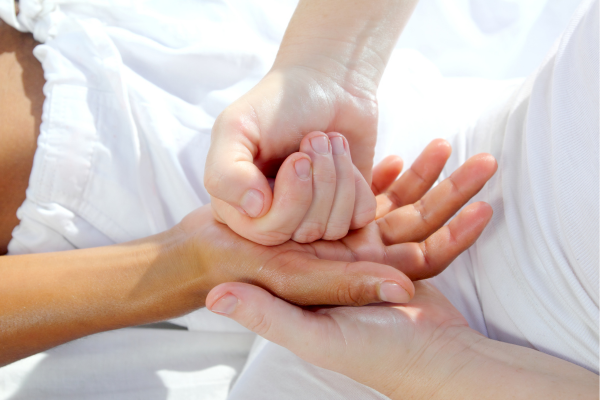
The way to treat foot and hand pain depends on what’s causing it. If it’s making your life difficult, it’s a good idea to see a specialist who knows about bones and joints, called an orthopedic specialist.
Here’s what they might do:
Check-Up
The specialist will ask about your symptoms, examine your medical history, and give you a physical exam. Sometimes, they’ll also do tests like lab work or medical images (like X-rays) to determine what’s causing the pain.
Diagnosis
Once they know what’s wrong, they’ll talk to you about improving it. You might get pills to reduce pain and inflammation. For certain conditions like arthritis, they might suggest steroid injections.
Other Treatments
They could recommend physical therapy, which means doing special exercises and stretches. They’ll guide you if you need help with your weight or other lifestyle changes. You might also need braces or shoe inserts to ease the pressure on your joints. And if your pain is linked to diabetes, they’ll help you manage your blood sugar better.
Non-Invasive Treatment of Foot and Hand Pain
In the leadership of Dr. Hanson, our team of experts uses non-invasive methods, full-spectrum healing, and regenerative medicine to help you overcome various problems. At Regenerative Masters, our experts focus on caring for your hands, arms, and upper body, as well as your spine and sports injuries.
Ready to Book an Appointment?
If you’d like to schedule an appointment with the experts at Regenerative Masters, please give our office a call at 612-800-5096. Our friendly staff is eager to hear from you and assist you with your needs.
